Why we need a Data Pool in the food industry

For some time now there’s been talk of the need for a single, centralised Data Pool used by the whole food industry. And with new legislation on the horizon, and changing business needs within the sector post COVID-19 those voices are getting louder. Here at Erudus not only do we agree with these calls, we believe that we are the solution.
Why a Food Data Pool?
Since the introduction of Food Information for Consumers (FIC) and Food Information Regulations back in 2014, everyone from consumers with food allergies and the charities that support them to trade associations like the Federation of Wholesale Distributors have voiced the need and support for a centralised food industry repository. One that enables easy access to potentially lifesaving allergen information and business critical data to the industry in its day to day operations.
Speak to any food business and you’d be hard pushed to find someone who doesn't agree that a centralised Data Pool is a good idea and would drive efficiency and value all the way through the supply chain, whilst protecting the end consumer. However, when confronted with the complexities of actually putting together such a venture, it becomes apparent that enthusiasm for the idea is not enough. Questions around how such a large scale project would be undertaken, what information exactly should be captured, who would be responsible for running it - and more importantly paying for it have set back the creation of an industry mandated Data Pool since talks of the need for one began almost a decade ago.
But today there’s a difference, Erudus. And we have the answers to those questions. Today’s Erudus is maturing, scaling, staying true to cost effectiveness and offers the best solution to a longtime industry problem.
Now here’s everything you need to know...
What is a Data Pool?
Put simply, a Data Pool is a software platform which provides a single place where you can find technical specification data for various products. For the food industry, this means a Data Pool contains information about a product’s ingredients, allergens and logistics, for example.
By housing detailed technical specifications for many products from multiple Brands and Manufacturers, a Data Pool negates the need for businesses to source the information individually from multiple Manufacturers - or for Manufacturers to keep all of their customers informed separately should a product change.
“A Data Pool is a centralised repository of data where trading partners (Manufacturers, Wholesalers, Retailers and Caterers) can obtain, maintain, and exchange information about products in a standardised format. Manufacturers can upload data to a Data Pool, which its end Caterer customer receives and makes use of.”
A Data Pool can be an important tool in helping food businesses save time, make fewer mistakes and drive efficiencies. In today's digital world, it can also allow users to share information faster and to more sources than ever before.
Erudus is a Data Pool tailored to the food industry
Erudus isn’t just a Data Pool, it’s a Data Pool that has been created, designed and evolved specifically for the food industry. It holds enriched technical product specifications and information for tens of thousands of products, from hundreds of Brands, own labels and Manufacturers. And we’ve gone (and will continue to go) even further than that - creating various solutions that are tailored for our food business users, and sit over the top of the data to add further value to it.
In a food industry Data Pool you can find product specifications such as product codes, ingredients, pack sizes and quantities, allergen information, waste packaging and industry accreditations
Who would a data pool benefit?
Everyone in the food industry would benefit from a centralised Data Pool - from ingredient Manufacturers to the end consumer, there's value to be unlocked for all.
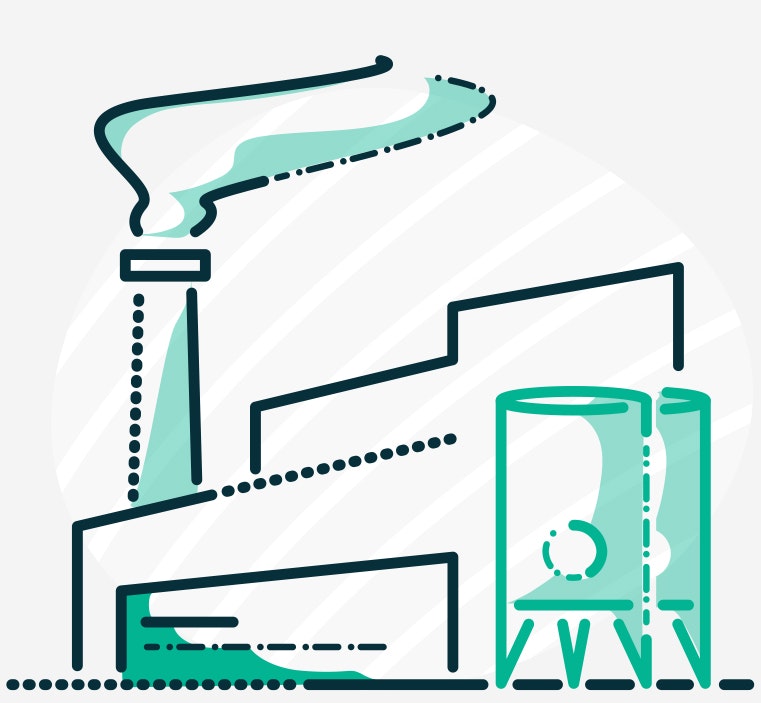
Manufacturer Benefits
Manufacturers will save time and resources by only having to input their product data into one place, instead of having to relay to their customers individually, sometimes hundreds of times. They can also be reassured that the product data seen by their customers is the most up-to-date and accurate. Essentially, it allows the communication of critical information on a scale that would be difficult, expensive or even impossible for some businesses to achieve alone. A centralised Data Pool for the food industry also boosts the potential of frictionless trade for Manufacturers - removing the need for lengthy forms and other such admin, and making them easier to do business with.

Wholesaler Benefits
With FIC (Food Information to Consumers) and FIR (Food Information Regulations), it’s essential that Wholesalers are able to provide important allergen information to their Caterer customers before it reaches the Point of Sale. A centralised Data Pool can be used alongside a Wholesaler’s in-house solutions and not only ensures that data is fed instantly to many different platforms, with everyone taking the same (accurate) information from the same place, but allows Caterers to ‘self-serve’ themselves information and cuts down on incoming queries and requests. A good Data Pool will also negate the need for lengthy and time-consuming new line forms (link) by streamlining and regulating the data input process, meaning less resources are required to gather the data Wholesalers need.

Caterer Benefits
FIC (Food Information to Consumers) and FIR (Food Information Regulations) legislation make it essential that Caterers are in a position to provide information regarding the 14 major food allergens for the products they sell. And with Natasha’s Law coming into play from October 2021*, it’s never been more critical for Caterers to have confidence in the ingredients they are using. A centralised Data Pool is the ideal tool to help them keep their customers safe, as it takes product information directly from the Manufacturer and makes it accessible to thousands of users using different platforms and across many channels, all at once. By removing the need to relay information many times, data accuracy is substantially improved, and changes and updates to a product can be communicated without delay. The trust a Caterer can put in its recipes as a result of using a Data Pool can then be translated into business growth - there is a huge market of consumers with dietary restrictions and requirements - from allergies to veganism, and a Caterer knowing the allergen and nutritional content of every dish they serve will make their menu much more accessible and attractive to this market.

Consumer Benefits
Consumers will benefit directly from the reliability of the Data Pool’s product specifications, and the greatly reduced risk of misinformation. Not only can people with allergies have confidence that the food in front of them is safe for them to eat, but people with any dietary restriction will be able to see which dishes and products they can and can’t consume - instead of everything being labelled off limits as a safety precaution because the Caterer can’t be sure. People without dietary restrictions will benefit too - particularly in the public sector (such as school and hospitals), where increased ingredient knowledge will mean Caterers are more confident in labelling allergen-safe and vegan options, instead of resorting to one safe option for everyone that might not be as tasty or nutritionally balanced.
What are the main challenges to achieving an industry wide Data Pool?
As mentioned at the beginning of this article, a Data Pool is a great idea, but not without its obstacles. It poses a number of key hurdles that would need to be overcome to make it a reality. Here are what we believe to be the key challenges:
Scale
A centralised Data Pool is really only an industry solution if the whole industry is using it. As such, there must be sufficient input and demand from both sides. It’s essentially a chicken and egg situation - Wholesalers won’t use it unless there are enough Manufacturers uploading product information and range coverage, and Manufacturers won’t want to upload anything unless enough Wholesalers are using the Data Pool to ensure the venture is of a scale big enough to release value. This leaves Caterers - who would really benefit from the accuracy of a centralised Data Pool - out in the cold. The sheer size of the food industry therefore presents a huge challenge in pulling this off.

Commitment
In any evolving and competitive industry there’s often little room for patience. Unfortunately, for a centralised Data Pool the value is in the long-term and not the short-term. It needs to be given time to gain scale and progressively add value. Especially in times like these, businesses look for quick fixes, but for this to work everyone needs to stay the course. A senior buy-in, with businesses committing to the cause, implementing the process changes required is imperative for success. The food industry needs to buy into the vision of a centralised Data Pool and the vision it unlocks.
Agreement
A major challenge is getting stakeholders to see eye to eye on the specifics of what information the Data Pool should hold, to striking an agreement that regulates standard sets without organisations having to sacrifice any of their competitive edge. Various parties involved with the Data Pool might have differing opinions on the specifics of the information stored and how it should be calculated, but in order for it to thrive an agreement does need to be struck. Some uncomfortable questions about the way things are done might be raised but it is only by taking a stark look at processes and making decisions that work for everyone that an industry solution will be achieved.

Education
The whole industry needs to be using a centralised Data Pool for it to truly fulfil its potential. Persuading the industry to sign up requires education on a mass scale of what the Data Pool can unlock for them, as well as the value of the role they will play in the bigger picture, where the data is coming from, where it will be getting used - restaurants, takeaways, hospitals, care homes and schools, and the areas in which it will aid them - recipe planning, e-commerce, logistics. Additionally, many businesses still need to be educated on the importance of the digital transformation happening around them and how it will shape the future of the industry - a Data Pool can be an integral part of that transformation but it is an area that is unfamiliar and daunting to some.
Barriers to entry
There is no one size fits all in the food industry - it is made up of global brands, start-ups and everything in between. A major hurdle for a Data Pool is ensuring that it’s equally easy to access and use effectively for all these different sized businesses, with all their differently scaled processes and ways of working - from portal type data in, to fully automated API integrations.
One area in which this is particularly challenging is cost. Cost cannot be a barrier to entry of a centralised Data Pool, and as such it must charge its users a price that is realistic and manageable for everyone who needs to use it, but it also must generate enough revenue for it to be able to continue to innovate and develop and improve in line with the ever-increasing and changing demands of the industry. The cost must be perfectly balanced.
How Erudus are already tackling and overcoming these challenges
Scale
Scale is critical, and at Erudus we have spent the last six years persuading those in the industry to join our cause - we now have some 800+ Manufacturers and Brands, communicating product information for 40,000+ products to 140+ Wholesales and 85,000 Caterers and Retailers. Already this level of scale has unlocked value to many a Manufacturer and Wholesale business, but we still see it as a starting point - our goal is to convince the entire industry to get involved and unite. And it doesn’t stop there, Erudus specialises in and was born out of foodservice, but expansion is the key to scale and so we’ve started expanding. We have now opened up to more generic Wholesale, and there are plans afoot to include more categories such as drinks and chemicals and all products food businesses stock.
Commitment
At Erudus we are committed to making a Data Pool that has value for everyone in the industry, and that means experimenting and innovating with new features and ways of working. Because of this, we’re going to get it wrong sometimes. But our long-term commitment to the success of an industry Data Pool is the most important thing and so we’re able to look past these small bumps in the road and instead of allowing them to put us back, use them to help push us forward.

Agreement
All Erudus users have different opinions and ideas of what a Data Pool should be, and we make it a point to listen to them, because there’s no better sounding board than our users when it comes to developing our software. However, in understanding our user cases we’ve also been able to challenge people’s practises (in terms of what attributes are needed) when necessary, and businesses have benefited as a result of the subsequent changes.
Cost Effectiveness
Pricing will always be a major Data Pool challenge and it’s an area in which we tried many routes (some more successful than others) before developing our current pricing structure, which is affordable but allows us to continue to push the solution. And we’re always looking for ways to save our users time and drive efficiency to make Erudus a cost-saving investment.
Education
We’ve been persistent in telling people about Erudus and experimenting with mediums of how we do that to see what is most effective. Thoroughness is key here, and we’ve been educating upstream and downstream with everything from user events, showrooms and forums to informative articles on our website and old fashioned phone calls.
We don’t intend to stop there - as Erudus moves forward we will continue to add more resources to make education more accessible and wide-spread, from introducing more support to our Technical team, to rolling out new User Training, resources and tools.
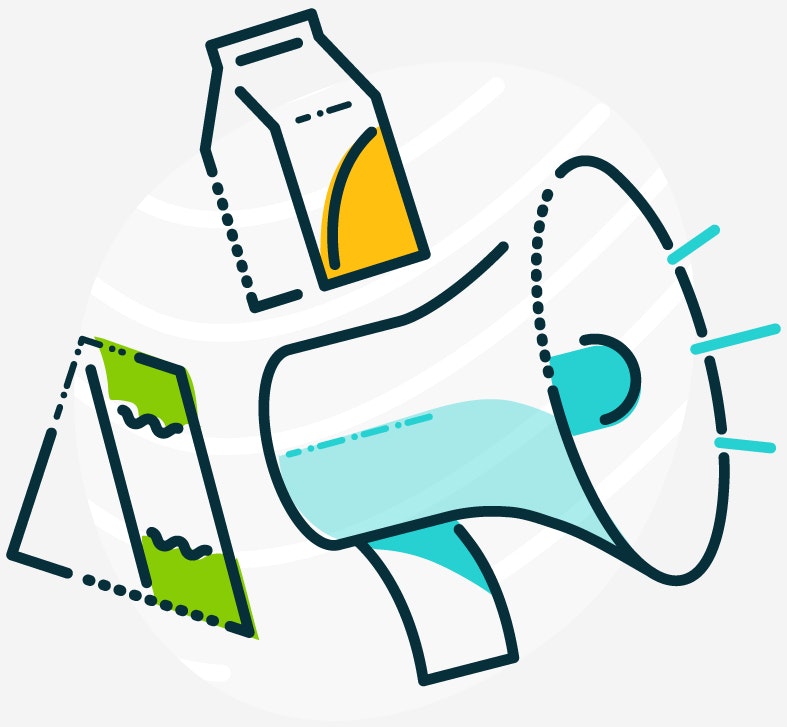
Barriers to entry
We understand that in the food industry there is no one size fits all, and so our Data Pool is geared up to be accessible to both big businesses and small kitchens alike. We pride ourselves on having both cutting edge technology and a low barrier to entry - in terms of both price point and required technical ability from our users.
We’ve streamlined our processes and removed unnecessary steps in user onboarding, so with the Erudus Data Pool it’s easy to get up and running and see results fast - no matter the scale of your operation.
Why do we need a data pool now?
Aside from all the benefits listed above, there are a number of factors aligning to make the proposition of a Data Pool even more appealing right now - among them digital transformation, pending legislation and changing consumer behaviours.
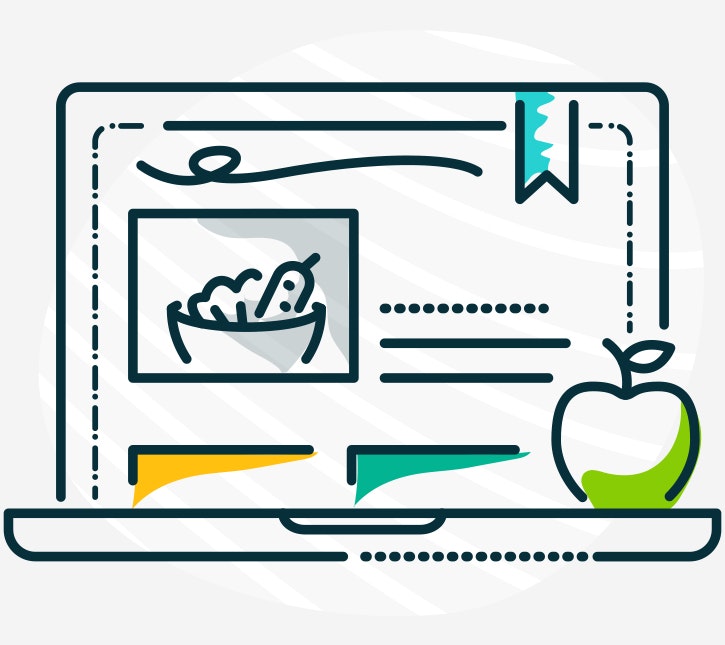
Digital Transformation
The foodservice industry has undergone a digital transformation in the past few years, with COVID-19 accelerating that journey further. Digitisation should now be top of the agenda for any Wholesaler, and a centralised Data Pool is key to achieving this - it helps put data across multiple digital channels and powers solutions such as digital shelves, online ordering, and mobile ordering.

Legislation
Whilst some in the industry are still getting to grips with FIC and FIR, even more legislation is headed the food industry’s way, with Natasha’s Law coming into play in October 2021. Officially called the Food Information (Amendment) (England) Regulations 2019, Natasha’s Law requires that food businesses provide a full ingredient list and allergen labelling on foods that have been prepackaged for direct sale on the premises, with any of the 14 major food allergens required to be declared by law emphasised within this ingredients list. The first step for a Caterer to be compliant with this law is to have access to the right information for their ingredients - in other words, access to a centralised Data Pool they can rely on.

Consumer Demand
Consumers now want to know much more about their food, and for a range of reasons - concerns about sustainability, organic eating, the rise in allergies and the increasing popularity of dietary plans such as veganism. Whether it’s because of lifestyle choices or dietary requirements this thirst for product data among consumers is only going to increase, and with it a harsher spotlight on the data itself and tougher consequences if that data proves to be inaccurate. One centralised Data Pool is the logical solution to ensuring that this data is made available quickly to all the people that need to see it, and most importantly that it is accurate and up to date.
How Erudus has prepared for any industry changes
At Erudus we’ve always got one eye on the future of the food industry - so that when changes in legislation and demand occur we are prepared. But what does this mean? It means that we anticipate challenges and we tweak our Data Pool and enhance our Solutions to make it easier for our users to adapt to any changes. We developed our API and WordPress plug-in because they allowed data to flow quicker and easier into the systems being used by our customers, and when it became apparent that the Wholesale industry was about to enter a digital revolution we introduced an Image Capture service that would provide low-cost, high quality standardised packshots and product photography to improve their e-commerce offering. Ahead of the introduction of Natasha's Law we have updated our Recipe Builder tool to make it easy for users to highlight allergen information on their PPDS (Pre-packed for Direct Sale) products, and this will be in place by the time the legislation comes into play in October 2021. Erudus is always looking out for the next thing to affect the food industry, and if we don’t yet have a solution - for example you can already track waste packaging on Erudus ahead of next year’s new Plastic Tax - you can bet that we’re looking into finding one.
Is the need for a Data Pool in the food industry primarily down to allergens?
No. Improved availability of allergen information within food products is very important - and certainly a hot topic - but it’s not the only area in which there is demand for greater visibility. Caterers and consumers want dietary requirement information such as whether a product is vegan or lactose free. Gluten-free ranges have seen a boom in the past few years, and there’s also been a national focus on sugar awareness. However, whilst issues like allergens are what grab the headlines, what it really comes down to is the business critical information that is fundamental to making the food industry work. Mundane data such as pallet dimensions for warehouse planning, case weights for logistical planning, and barcodes are what help trade and what people rely on day to day, and will always be the main reason that a centralised Data Pool would benefit everyone in the supply chain.
Erudus is about more than just allergens (although we take them very seriously)
It’s true that allergen information is important to Erudus - we’ve worked hard to make it easy for our users to see the allergen information of the products they’re using and even the recipes they create, but our dedication to data doesn’t stop there. In addition to allowing you to see how much sugar a food product contains, or whether it is suitable for a specific diet, we also track waste packaging (increasingly important as social interest in sustainability ramps up) and create and store product photography suitable for both e-commerce and printed materials. Most importantly, we understand that our users want the basics as well as the high profile attributes and so we hold 200 data fields for products on Erudus - this can cover nutrition information going into school catering, the weight of a pallet route planning software for Wholesalers, and listing accreditation and certifications to help the Wholesale tendering process. It’s these things that highlight the efficiency of pushing a single source of data truth.
What’s the key to a successful industry Data Pool?
There are three touchstones that must be met in order for an industry Data Pool to excel - communication, collaboration and cost.
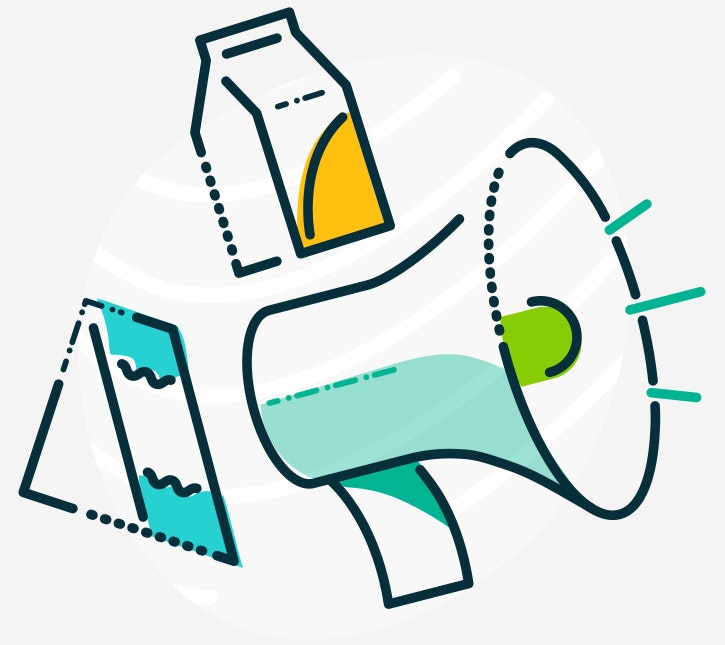
Communication
Not just communicating the existence of a Data Pool across the industry and persuading all stakeholders to engage, but understanding the need to seek feedback and adapt a centralised depository to reflect the needs of those using it.
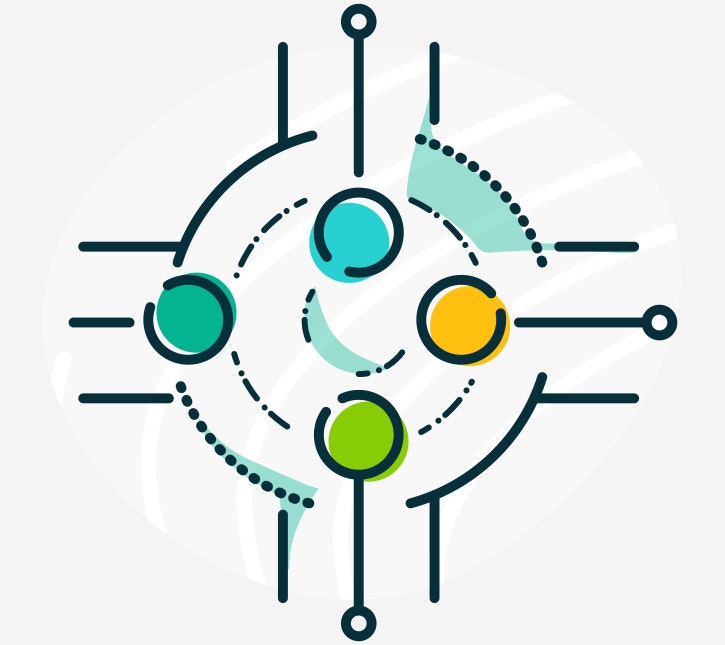
Collaboration
Working together is key - everyone in the supply chain needs to do their bit and support the venture. A Data Pool will benefit the entire industry and will out-perform any individual solution, but all of the pieces of the jigsaw need to be in place for the bigger picture to be realised.
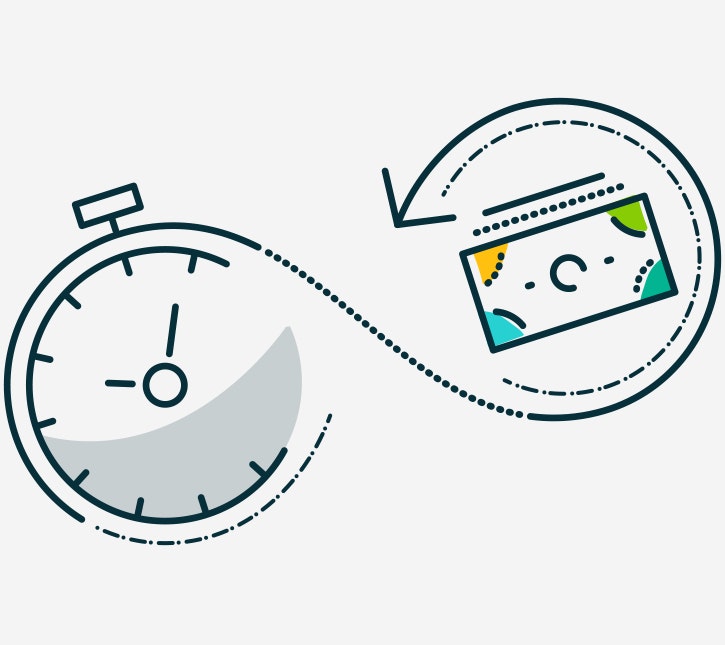
Cost
A Data Pool that works for the entire industry must have low barriers to entry - both directly (in terms of cost) and indirectly (the technology a food business has in place, the size of the workforce). However, the venture will need to generate enough revenue to continue to develop and improve as the needs of the food industry grow and change. A price that is inclusive to all business sizes but isn’t so low as to prevent growth is integral to creating a successful Data Pool.
What Erudus is doing to ensure our Data Pool works for all
We know that the best way to create a Data Pool that works for everyone, and engages them, is simply to listen. So one of the most important things we offer at Erudus is our ear - it’s one of our core values that we listen to our users and develop the platform based on their requirements. Not only do we encourage users to contact us and give us feedback, but we have dedicated Slack channels open for direct access to the relevant teams in our business and User Forums where we welcome their input. Ultimately we feel it's a two-way street - it’s important to us that we’re collaborative with our users and that’s why many of the improvements and additions we have made to Erudus have come at the behest of our customers - they spoke, we listened and we acted. And we’ve gone to great lengths to ensure that Erudus is accessible to everyone in the food industry - doing a magnitude of different little things that make sharing data easy for businesses of every size. We don’t over complicate things, and we go one step at a time so no one gets left behind. We passionately believe in casting the net of data far and wide so that as many people as possible can benefit from Erudus, and once data is on our platform we work tirelessly to maximize its exposure to everyone who needs to see it. We do this through scale, but also through an ever-increasing number of strategic integration partnerships - for example our recent integration with healthcare technology specialists Synbiotix, which will enable our data to reach NHS Hospitals across Scotland.
How do we get started on an industry Data Pool?
The good news is we’ve started already - Erudus entered into a period of accelerated growth in 2014, and in the years since the breadth and depth of our Data Pool has rocketed to over 40,000 products from 800+ brands and Manufacturers, 140+ Wholesalers and over 85,000 Caterers and Retailers accessing our data and solutions, as well as 4,000 product images and 4 million product updates via API a month. Solid foundations are there - Erudus has the framework and the data mass to provide the industry with a centralised Data Pool, now we’re asking you to get on board and unite with us in a final push in putting critical food product data in front of everyone who needs to see it. The time for something like an industry charter has passed - Natasha’s Law is imminent and digital growth booming. Erudus has seven years of growing and learning from our mistakes, of listening to feedback and making technical advancements. Today’s Erudus is a maturing and sophisticated solution, and currently the closest thing the industry has to a centralised Data Pool tailored for and accessible to the masses. We know that what we’re doing is working - more and more businesses are choosing to join us - Erudus is already used by the majority of key players within foodservice and scaling at pace, but as stated above, a centralised industry Data Pool needs everyone to get on board.
We’ve done the advancing and the enhancing and now is the time for action. Erudus would like to invite everyone and anyone in the industry to talk to us, and discover everything we have to offer as a Data Pool and how it can benefit you both now and in the future. The food industry has a data problem, we’re asking you to join us, and be part of the solution.